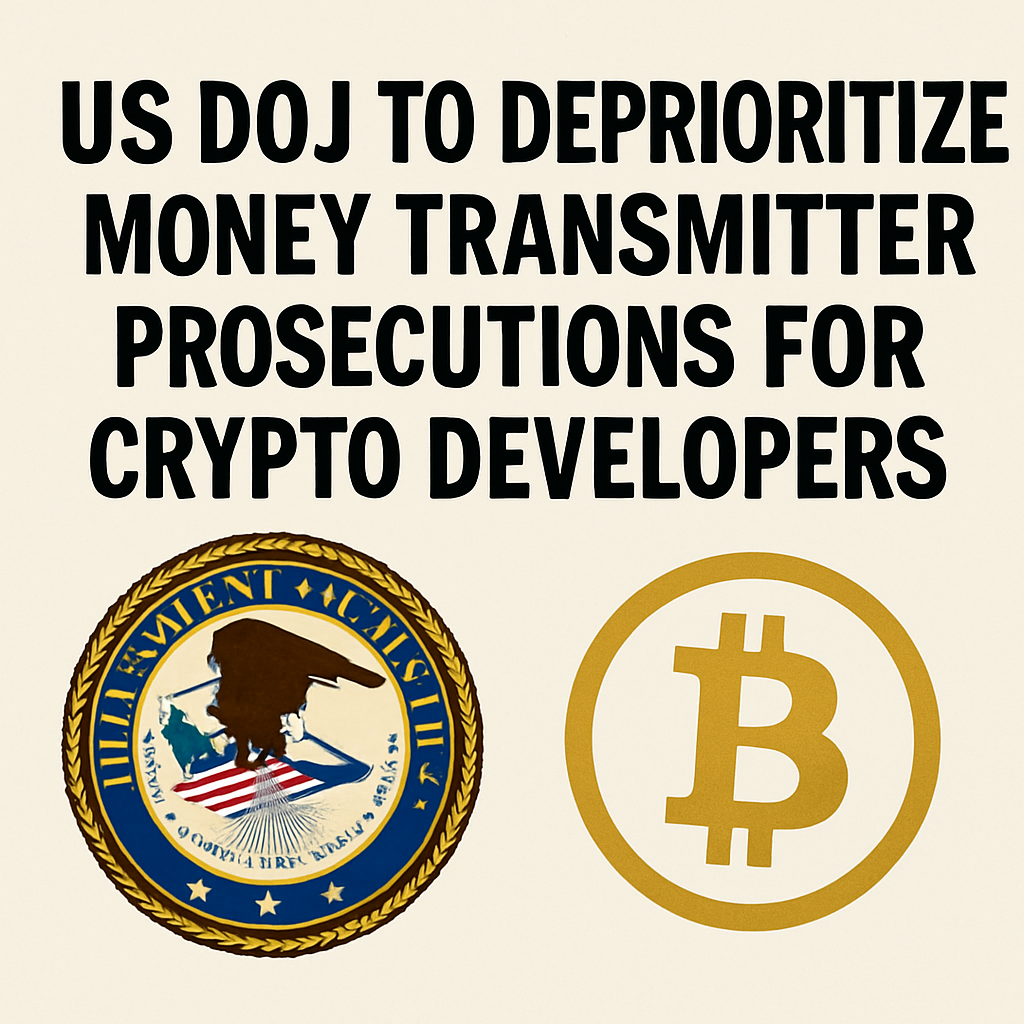On August 21, 2025, the Department of Justice announced a landmark policy shift indicating that it will no longer prosecute software developers who write code for decentralized cryptocurrency platforms absent evidence of criminal intent. Acting Assistant Attorney General Matthew Galeotti declared that merely writing code, without a demonstrable intent to facilitate illicit transactions, does not constitute a crime, thereby effectively ending efforts to classify unlicensed protocol development as money transmission offenses. This change follows criticism of prior prosecutions, including the case of a decentralized mixer developer convicted of conspiracy relating to unlicensed money transmission, where the jury deadlocked on more serious money laundering and sanctions charges.
The revised approach will de-emphasize registration requirements for developers of decentralized exchanges and other blockchain-based applications, which frequently lack centralized control or oversight. The DOJ’s crypto enforcement team has been disbanded, and the agency has withdrawn from several high-profile actions, reflecting growing concerns that strict regulation of code authors could stifle innovation. Under the new policy, developers whose contributions to open-source blockchain networks facilitate peer-to-peer transactions will be immune from prosecution unless they knowingly assist illicit actors or engage in direct financial services without proper licensing.
Legal experts view the announcement as part of a broader realignment under the current administration, which also includes the Securities and Exchange Commission dropping multiple enforcement cases against major crypto platforms. Industry stakeholders have advocated for clear, flexible guidelines that distinguish between bad actors and legitimate protocol contributors, arguing that overly aggressive enforcement had created uncertainty and hindered the growth of decentralized finance.
Galeotti emphasized that consumer protection and national security remain priorities, but enforcement will now focus on prosecuting manifest wrongdoing rather than penalizing fundamental software development activities. Observers expect the new policy to encourage greater participation by independent developers, accelerate the deployment of decentralized applications, and bolster the United States’ competitiveness in blockchain innovation. The DOJ’s pivot underscores an evolving regulatory landscape where technology considerations are increasingly balanced against enforcement objectives, signaling a more innovation-friendly environment for crypto development and research.

Comments (0)